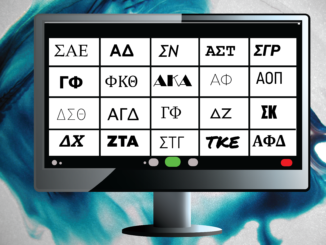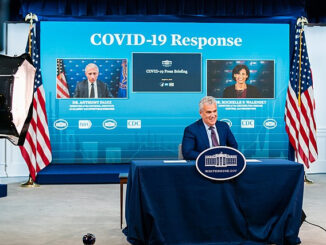
Capri Scarcelli | a&e editor
Oct. 28, 2021
Halloween’s yearly masquerade allows individuals to characterize themselves however they’d like. But where is the line between creativity and insensitivity?
Halloween costumes are primarily inspired by pop culture. Whether in the news or on our TV screens, there are bound to be references to current events.
However, this can, at times, lead to cultural appropriation and sensitive topics to be worn as a garnish to Halloween’s festivities.
Appropriated costumes can include, but are not limited to: any darkening of the skin, use of religious symbols, imitating Native American/Asian/African culture and more. Insensitive costumes could also mean putting emphasis on politically-tense topics or natural disasters — such as imitating the Covid-19 pandemic.
To understand the importance of political correctness on Halloween, we have to take a leap back into historical context of the holiday.
In the early 1900s, America’s Halloween costumes were worn as a way to mock the uncanny and ward off evil spirits, according to CNN.
With the goal to be in complete disguise, the stereotypical ghoul, goblin, fairy or witch costume eventually transitioned into pulling ideas from people in town — including people of poverty, persons with disabilities and people of color.
To address issues with appropriation, the “People Not Costumes” movement was started three years ago in Phoenix by Native Americans. The movement attempts to highlight the annual “identity theft” performed by college campuses each Halloween, according to NPR.
Dressing to imitate — fictionalized or not — perpetuates a kind of racism. Though not always done intentionally, this act of racism is harmful to those of a particular culture or ethnicity in their day-to-day lives.
NPR suggests people dress to imitate the quality of a character, not the culture they represent. This could mean wearing Beyoncé’s iconic “Lemonade” outfit instead of altering hair/skin color, or wearing a Maui costume from “Moana” without the tattoos. This act shows appreciation for the culture without appropriating it.
The rule of thumb is simple: if you have to question it — don’t do it. And, if you still aren’t sure, ask someone of that culture whether or not a costume idea is okay. Open and honest communication is an important part of properly representing yourself for spooky festivities.
Since Halloween costumes are with the times, it must be noted that any iteration of Covid-19 costumes should not be worn, as millions of people have lost their lives. Dressing as the virus, vaccine cards, sexy nurses and insensitive Asian references are not an option for your night out. Just because you may cope with humor does not mean others do. Instead, combine Covid-consciousness with adaptive mask-wearing.
You could keep those around you safe by dressing as a mummy, an “invisible man,” Michael Myers, Ghostface from “Scream” or any other costume concept that involves a face covering. This will get your point across as dressing in a time of a pandemic without crossing the line of offending someone who may have lost a loved one or knows someone who works in hospitals who has seen the damage the virus has caused.
Be creative, be bold, and safely celebrate a holiday of dress-up and laughter with friends. Be conscious of your costume, and make sure that everyone is on the same page to ensure a comfortable environment for all.



